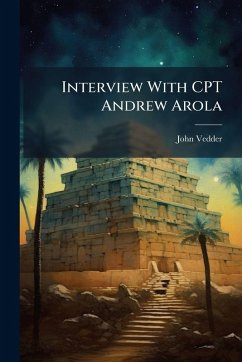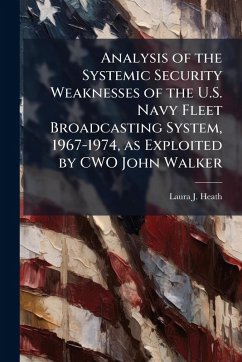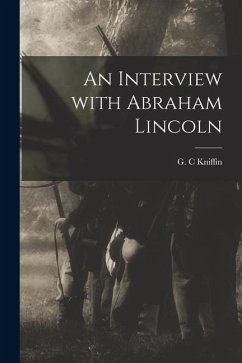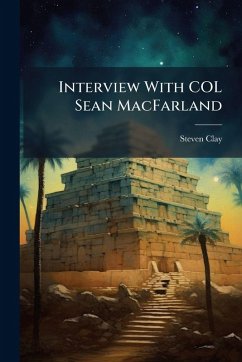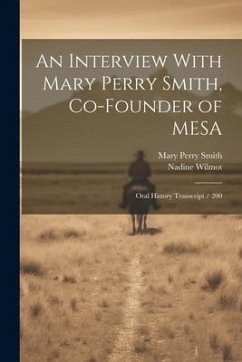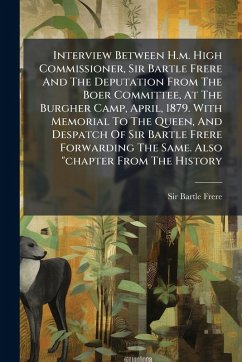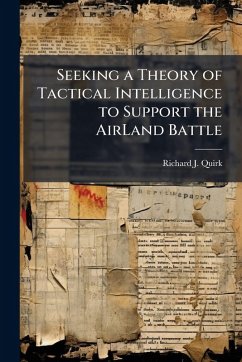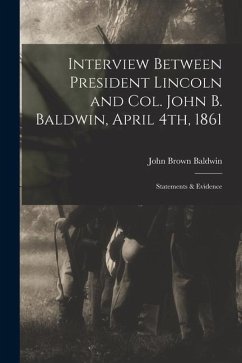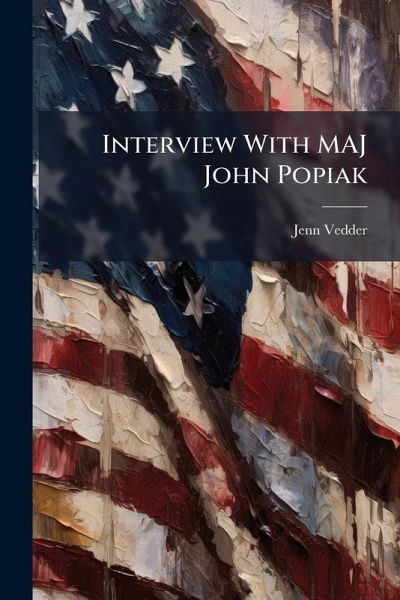
Interview With MAJ John Popiak

PAYBACK Punkte
7 °P sammeln!
In this March 2011 interview MAJ John Popiak, Military Intelligence (MI), discusses he 2010 deployment to Afghanistan as the operational manager for the Real-time Regional Gateway (RTRG) intelligence tool and platform used in support of GWOT. MAJ Popiak discusses some of the challenges he faced working in the joint environment and how he overcame them. MAJ Popiak explains how his team worked in Afghanistan and how he supported the war fighter on the ground. MAJ Popiak concludes his interviewing by stating that the MI community needs to recognize that not everyone is going to be good at counter...
In this March 2011 interview MAJ John Popiak, Military Intelligence (MI), discusses he 2010 deployment to Afghanistan as the operational manager for the Real-time Regional Gateway (RTRG) intelligence tool and platform used in support of GWOT. MAJ Popiak discusses some of the challenges he faced working in the joint environment and how he overcame them. MAJ Popiak explains how his team worked in Afghanistan and how he supported the war fighter on the ground. MAJ Popiak concludes his interviewing by stating that the MI community needs to recognize that not everyone is going to be good at counterinsurgency (COIN) operations and he further states that, "The greatest challenge I think we face organizationally as an Army is that there are certain aspects of MI that are just more technical than others. We do ourselves a disservice by not creating subject matter experts in some of these fields." This work has been selected by scholars as being culturally important, and is part of the knowledge base of civilization as we know it. This work was reproduced from the original artifact, and remains as true to the original work as possible. Therefore, you will see the original copyright references, library stamps (as most of these works have been housed in our most important libraries around the world), and other notations in the work. This work is in the public domain in the United States of America, and possibly other nations. Within the United States, you may freely copy and distribute this work, as no entity (individual or corporate) has a copyright on the body of the work. As a reproduction of a historical artifact, this work may contain missing or blurred pages, poor pictures, errant marks, etc. Scholars believe, and we concur, that this work is important enough to be preserved, reproduced, and made generally available to the public. We appreciate your support of the preservation process, and thank you for being an important part of keeping this knowledge alive and relevant.



